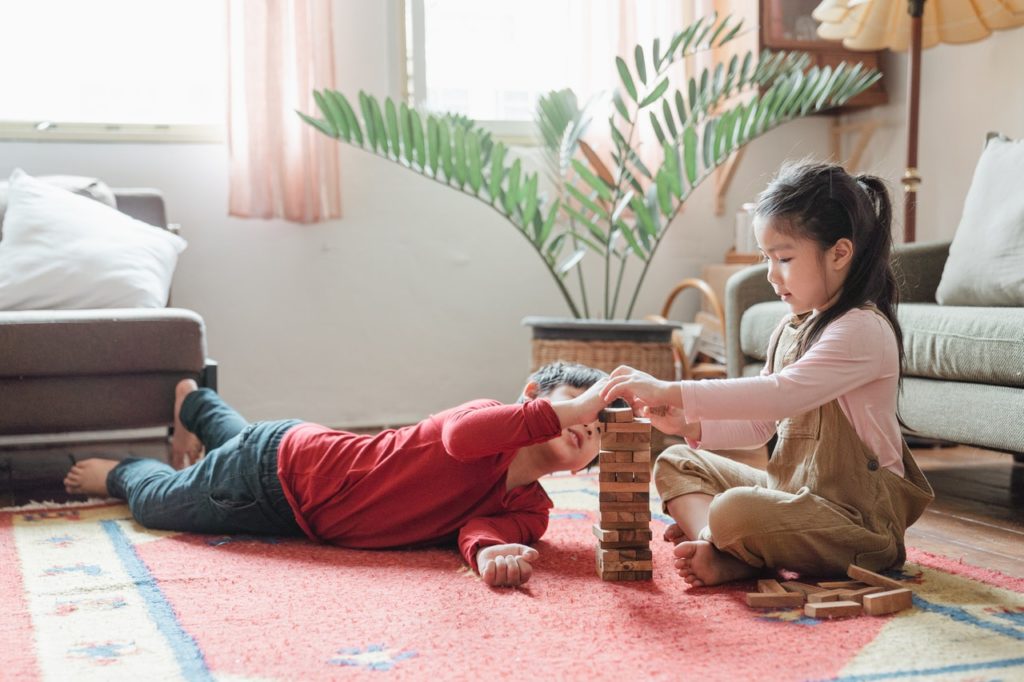Every year, more than 12,000 young people aged 0-19 years, die of unintentional injuries while over 9.2 million experience emergency nonfatal injuries.
While you can’t protect your kids from every type of danger in the world, you can keep your home safe from hazards. By childproofing your home, you can reduce the risk of burns, falls, poisoning, electrocution, and other injuries.
Follow these steps to maintain a safe home environment for your entire family:
Choose the right flooring
You’ll want floors that aren’t just safe for your kids, but also can withstand spills and frequent foot traffic.
Carpet is a soft, natural insulator that can help prevent slips, absorb sound, and offer additional cushioning in case of falls and accidents. This is great news if you have kids constantly running about.
Hardwood floors, on the other hand, are durable and easy to clean. Unlike carpet and other types of flooring, wood is completely natural and free of volatile organic compounds (VOCs) which can be harmful to your kids. Authentic wood flooring can also improve the air quality within your home, since it doesn’t collect mold, dander, dirt, dust, and other harmful allergens. Cleaning and installing wood flooring are also easier. Because of its flat surface, most spillages can be resolved quickly with just a mop or cloth.
Vinyl is another popular flooring material for homes with children for its resistance to rips, tears, and stains. It’s also affordable, long-lasting, and low-maintenance. However, vinyl is not a natural product, and manufacturing involves releasing toxins into the atmosphere.
Rubber mats provide a soft place for children to play while protecting your vinyl or hardwood floor underneath. Floor mats are also maintenance-free, and you can simply swap it out for a new one should it start displaying signs of wear and tear.
Identify your home’s danger zones
Areas of the home where there is heat, flame, water, or toxic substances are most dangerous for children. Cupboards and cabinets filled with cleaning supplies, medicines, and other chemicals must also be locked and kept out of reach from children.
Similarly, balconies, high windows, stairs, and slippery floors could pose a threat to both kids and adults. Keep your balcony doors, windows, and exterior doors with childproof locks for extra protection.
Position your furniture away from windows to prevent kids from climbing and falling out of them. Install handrails on your stairs, and use baby gates to keep infants away from them.
Doorknob covers are another way to stop children from wandering out of the house or going into your swimming pool while you’re not looking.
Keep hazardous items out of reach
You’ll be surprised at the number of objects in your home that can threaten your children’s safety. Everything from medicine, cords and firearms to matches, cutlery, and cleaning supplies can pose a risk. Identify which household items are hazardous and store them high up and well out of reach.
Even a small amount of household poison such as detergents, bleach, and furniture polish can cause eye irritation or severe stomach and breathing problems.
Prioritize electrical safety

Children can easily unplug a cord from the power strip, stick their fingers or toys into one of the holes, and electrocute themselves. Avoid this by concealing power strips behind furniture or protecting them using a power-strip cover. Similarly, install outlet covers on all your electrical outlets and clear your floors of wires and extension cords as these could present a trip hazard for everyone.
Ensure battery covers are secure on remote controls and other appliances. Keep devices with small button-cell batteries out of sight as these types of batteries can lead to severe injury or death if ingested.
Prevent burns
Everyday products such as candles, hot stoves, and scalding water can cause mild to severe burns if you’re not careful.
Install a fireplace cover. Turn your water heater down and equip the faucets and showers spouts in your bathroom and kitchen with anti-scalding devices to avoid hot water burns.
Check your alarms
Stay vigilant of potential dangers by installing functional smoke and carbon monoxide detectors on every level of your home. Install CO alarms near bedrooms and replace the batteries at least once a year. Consider using 10-year batteries for higher cost savings. If you have an outdoor pool or hot tub, attach a floating pool alarm and be notified every time someone or something goes in the water.
Accidents can happen at any moment, so it’s important to be prepared. Childproofing your home gives you peace of mind knowing your kids can explore and grow up in a safe environment.

